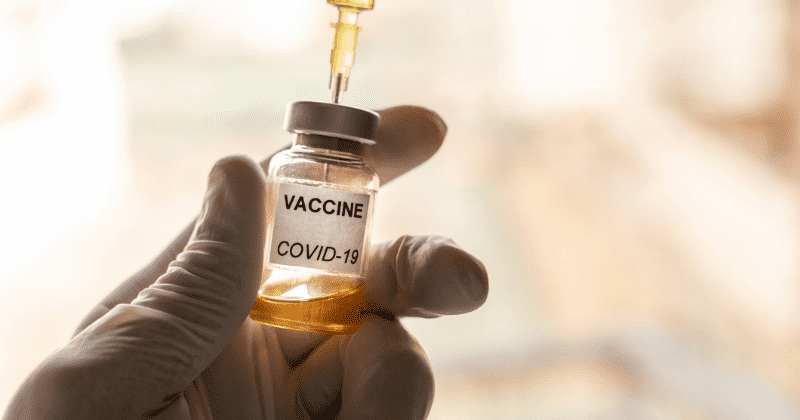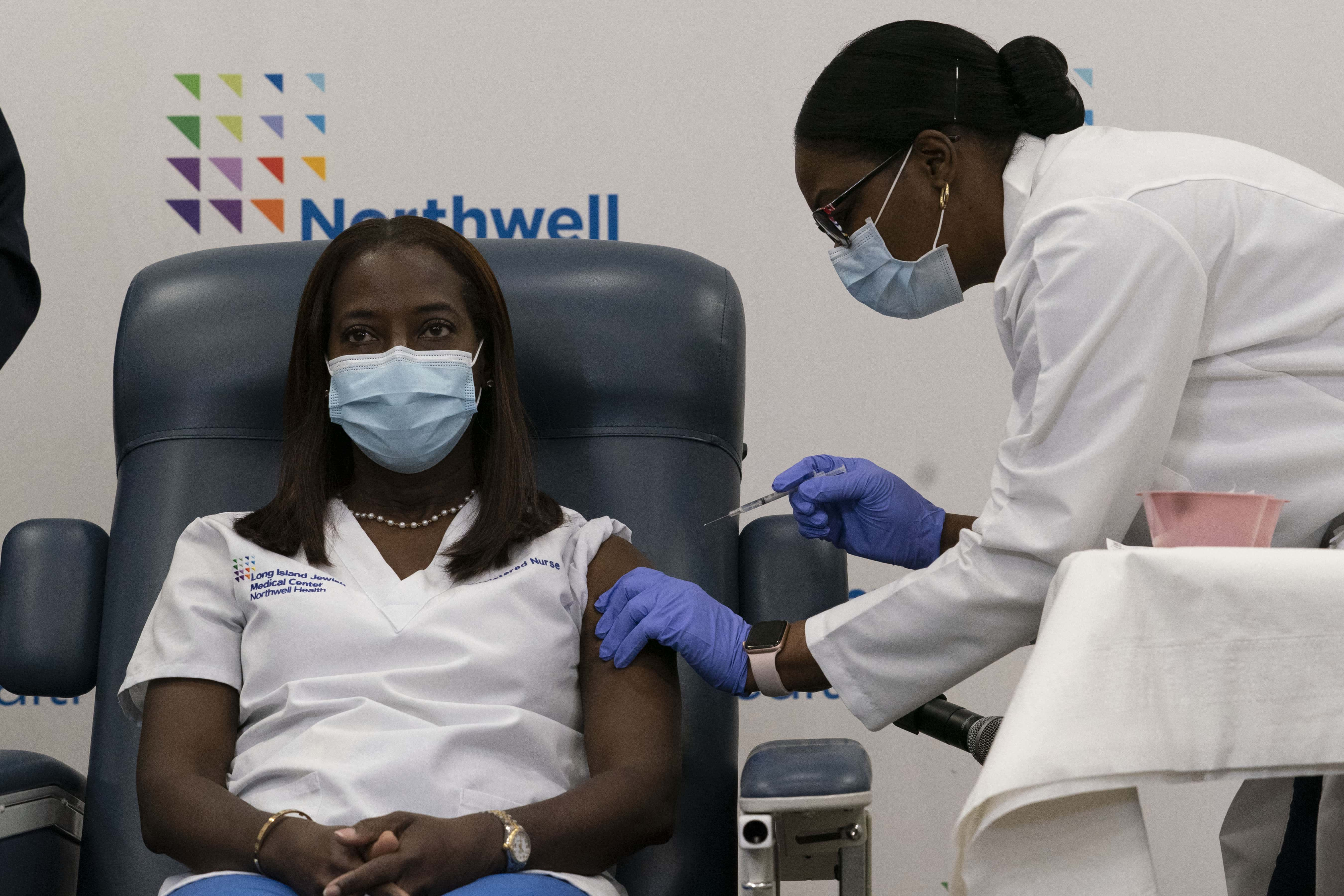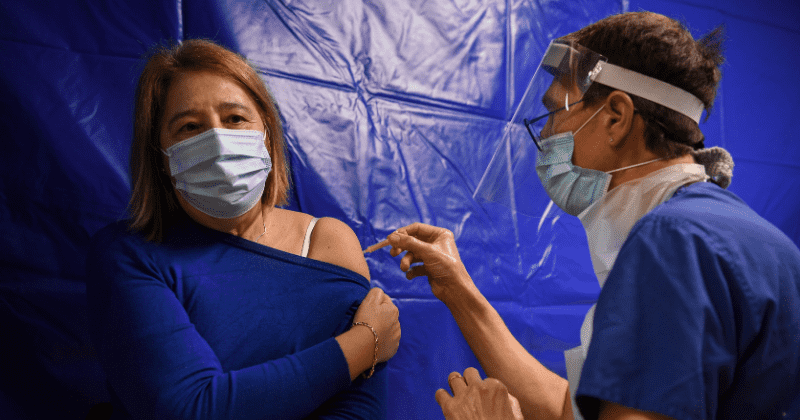Will Covid-19 vaccine shortage expose racial disparity in US? Blacks and Latinos' hesitancy sparks concern

The Covid-19 pandemic has been a topic of discussion since last year due to the number of deaths that the virus has caused. Over the course of the pandemic, vaccines such as Moderna and Pfizer have been authorized for release in an effort to stop many from contracting the deadly virus. While cost and accessibility of the virus showed the cause of concern, many are now wondering if racial disparities or discrimination and distrust in the healthcare system will play a part in the delivery of the vaccines to American citizens especially when it comes to Blacks and the Latino community.
There have been many reports on disparities that should be looked into and most of these wouldn't be solid data until of course all vaccinated recipients are punched into the health system. Here's what experts on health care disparities have to say about the current disposal of the Covid-19 vaccines to these specific communities.
RELATED ARTICLES
Nearly a third of Black Americans hesitant to take Covid-19 vaccine because of distrust, poll finds

Reports and statistics indicate racial disparity
An NBC article spoke of these issues that can create concerns among the Black and Latino community as the government tries to make sure all of its citizens are vaccinated. These specific communities have struggled with trusting the health care system as they've experienced "unequal access to care." The publication revealed that health advocates say that these communities that have high Covid-19 rates among them are "least likely to get vaccinated." This comes from systemic racism and "collective trauma," it says as Sernah Essien of Universities Allied for Essential Medicines said, "The people who need it the most are the same who don't trust it. Without considering racial equity, we deepen the cracks that systemic racism has already created in our health care system."
Back then Joe Biden was just the president-elect, now he's the 46th president of the US, but will things change when it comes to medical care for communities that need it the most? The publication revealed that back in December 2020, a top advisor for Biden said in an interview with The Associated Press that addressing these concerns of racial disparity "cannot be overlooked". An expert on health care inequality at the prestigious Yale University, Dr Marcella Nunez-Smith said, "We cannot get this pandemic under control if we do not address head-on the issues of inequity in our country. There is no other way.” Few states, according to reports, have said that their intention is to "prioritize communities of color" when the vaccines become available. Now that this issue is out in the open, is this really the case?

A recent ABC30 article, says otherwise at least in the state of California. The data as of Monday, February 15, 2021, shows the percent of vaccines that were administered as they are submitted into a statewide immunization registry by vaccine providers and health care systems. The data reads, White: 32% Latino: 16% Multi-race: 14% Black: 2.9% Other & Unknown: Around 20% Native Hawaiian/Pacific Islander: 0.4% American Indian/Alaska Native: 0.3%. Dr Yvonne Maldonado, infectious disease physician and voting member on the CDC's vaccine advisory committee said, "The distribution of vaccine so far by race and ethnicity are about right for white and Asian populations. But, lower proportionately for Latino, Black, Native American, and Alaskan native populations."
While the data does say what it does, Maldonado said that immediate conclusions shouldn't be drawn until more information comes in. The fact of reporting lag should also be considered, but Solano County Public Health Deputy Director Dr Bela Matya said, "With that said... there are underlying racial disparities in those workforces and there are underlying racial and ethnic disparities among people who access long-term care facilities."
What is being done about it?
ABC30 revealed that the officials from Fresno city are working "to get more Latino, Black residents vaccinated." Speaking of the preliminary data that was made public, Shantay Davies-Balch, the director of the African American Covid-19 Coalition said, "I don't think we are surprised by the data, we knew going into this there was going to be some hesitancy in our communities of color. We know there is Historical medical mistrust in the community. We know that there have been instances where Black folks have been used in research and science without being informed about what's happening."

A FOX28 report revealed that the Savannah Black Heritage Festival had featured a panel to talk about the Covid-19 vaccine with Black and Latino communities. The panel, the publication said, consisted of doctors, nurses, community activists, and educators. Executive Editor of the Savannah Morning News Rana Cash reported, "13 of 15 people age 45 or under who have died from COVID were Black or Hispanic. Only 17 percent of the 18,334 vaccination doses that have been given so far have been given to Black people who make up about 41 percent of the county," and people want to know the reason behind this.
An NPR article revealed that in the South there are Covid-19 vaccine sites that were missing from Black and Hispanic neighborhoods. The article that was published earlier in February revealed that NPR had found disparities by looking into the Census Bureau statistics of non-Hispanic white residents and also mapping where the vaccine sites are. They also revealed that the team of researchers from the West Health Policy Center and the University of Pittsburgh had found that there were almost 2 dozen urban counties where Black residents had to travel further than their White counterparts to a vaccine site. Dr Utibe Essien, an assistant professor of medicine at the University of Pittsburgh who is in the field of studying health disparities said, "We're hopeful there will be new facilities that are stood up, But what we saw play out with COVID testing was there were new facilities that came up, but they relied on existing infrastructure. This is structural and foundational to the racial disparities in our country."
There is an obvious discussion about the topic and many publications have revealed that there is an obvious concern that the Black and Latino communities are in higher need of these vaccines but are not receiving it. Over the course of vaccine rollout, data will continue to come forward to see if this widespread issue is being tended to. Most data coming in is preliminary but does show a pattern that is a bit daunting.










